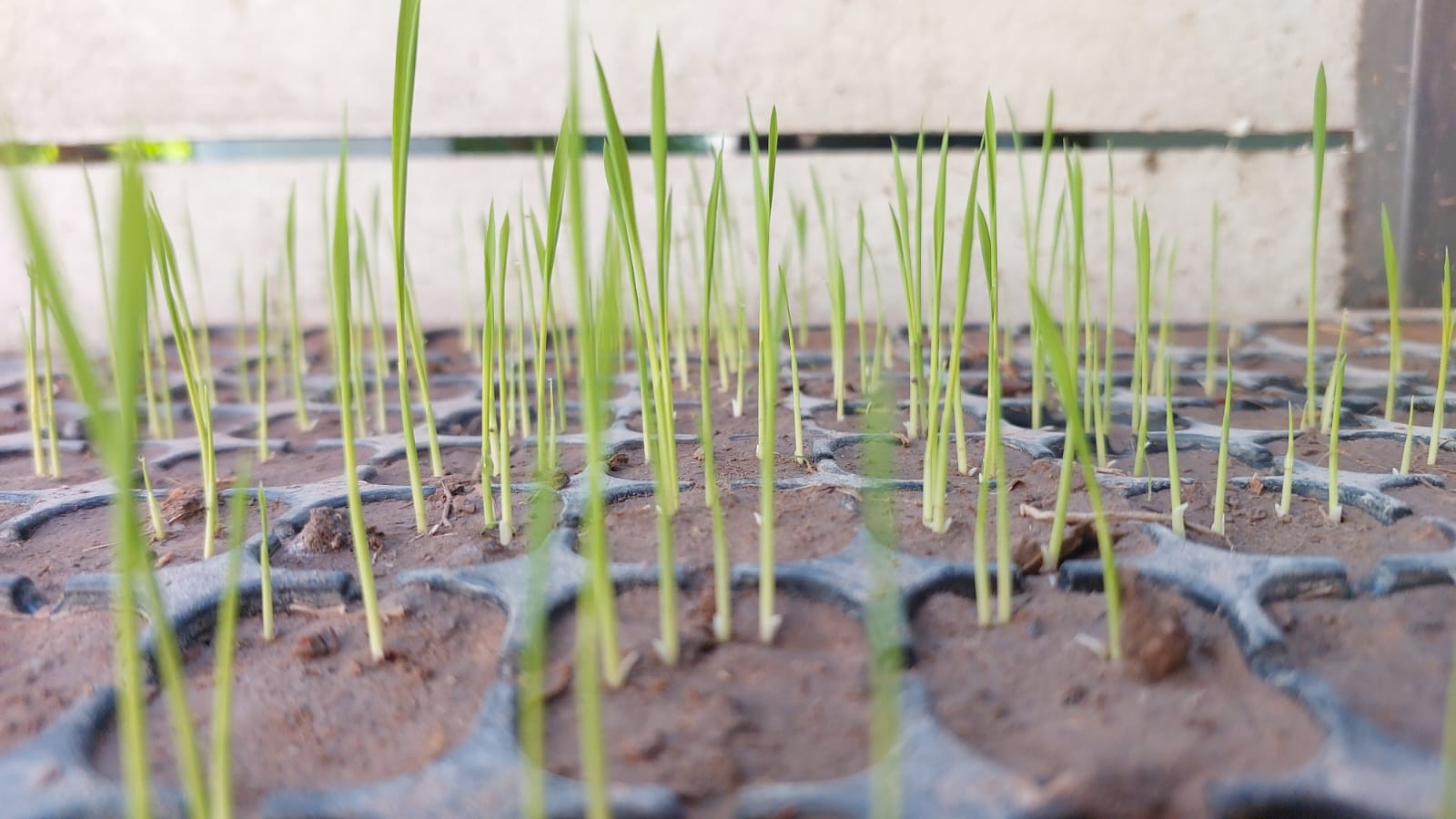By Kritagya Regmi and Puja Bhetwal
Students from the Asian Institute of Technology (AIT) and various universities shared their innovations on sustainable urban wellness at the 4th Sustainability Hackathon, organized from 18 to 20 November 2022, at the AIT Entrepreneurship Center (EC).
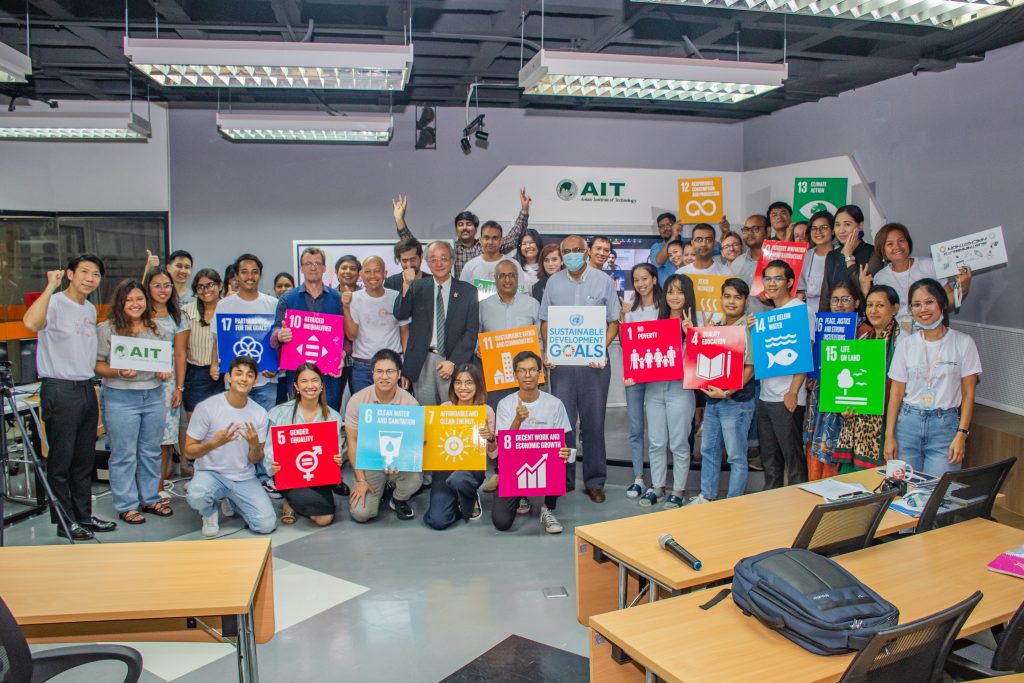
The hackathon focused on the interlinkages of rural-urban migration movements and how human wellness in urban areas can be improved as people migrating from rural areas face many urban challenges. Jointly organized by the AIT Department of Development and Sustainability (DDS), AIT-EC, and Computers and Structures, Inc. (CSI), a total of 14 teams from different universities participated in the event.
Launching the event, AIT President Prof. Kazuo Yamamoto highlighted the challenges of rapid urbanization and talked about its effect on achieving the Sustainable Development Goals (SDG). He said, “It is another great day for AIT as we hold this hackathon to address rural-urban sustainability and human wellness as urbanization accelerates. Scientists and world leaders say rapid urbanization will face two key problems. New urban difficulties include pollution from old environmental, social, and governance factors, while a lack of labor force in rural areas will reduce the production of resources for economic growth. These two difficulties can affect all aspects of sustainability; thus, we won’t reach the SDGs if we don’t solve them.”
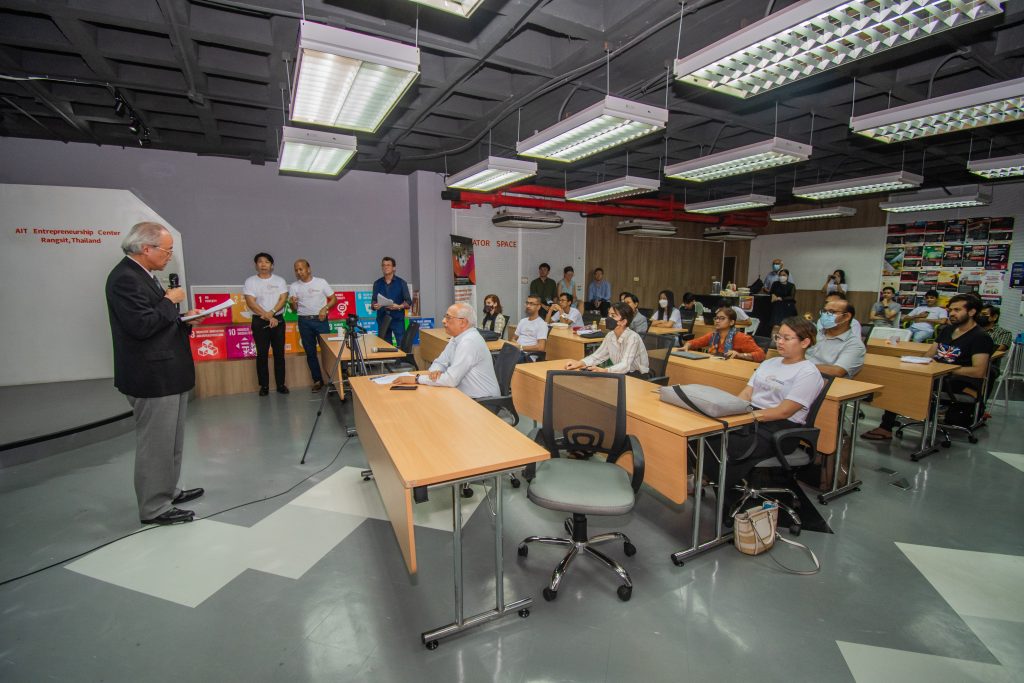
Stressing that the hackathon aims to identify solutions to emerging concerns and to ensure sustainability ‘leaving no one behind’, he said, “Where there are challenges, there are opportunities. We’re here today to brainstorm and formulate answers to these two primary challenges using our knowledge, skills, experience, and aptitude with all technologies.”
Giving his welcome remarks, Prof. Vilas Nitivattananon, Dean of the School of Environment, Resource and Development (SERD) stressed that sustainability is a wide-ranging issue from economic to social contexts. He added, “We provide a course on situation development and sustainability that teaches both basics and applications on how to manage complex sustainability concerns. The hackathon topic is timely and closely related to this course and provides a good opportunity to find possible solutions from both academic and technical point of view.”
He thanked the partners and sponsors, specifically the D DS, AIT-EC, and CSI, for supporting the competition.
Prof. Sobhakar Dhakal, AIT’s Vice President for Academic Affairs, highlighted the institution’s efforts and desire to contribute towards meeting the SDGs. “AIT is not just working on long-term sustainability issues such as climate change, loss of life, diversity and resource depletion, but also on issues that confront us soon, especially in achieving the SDGs”, he said.
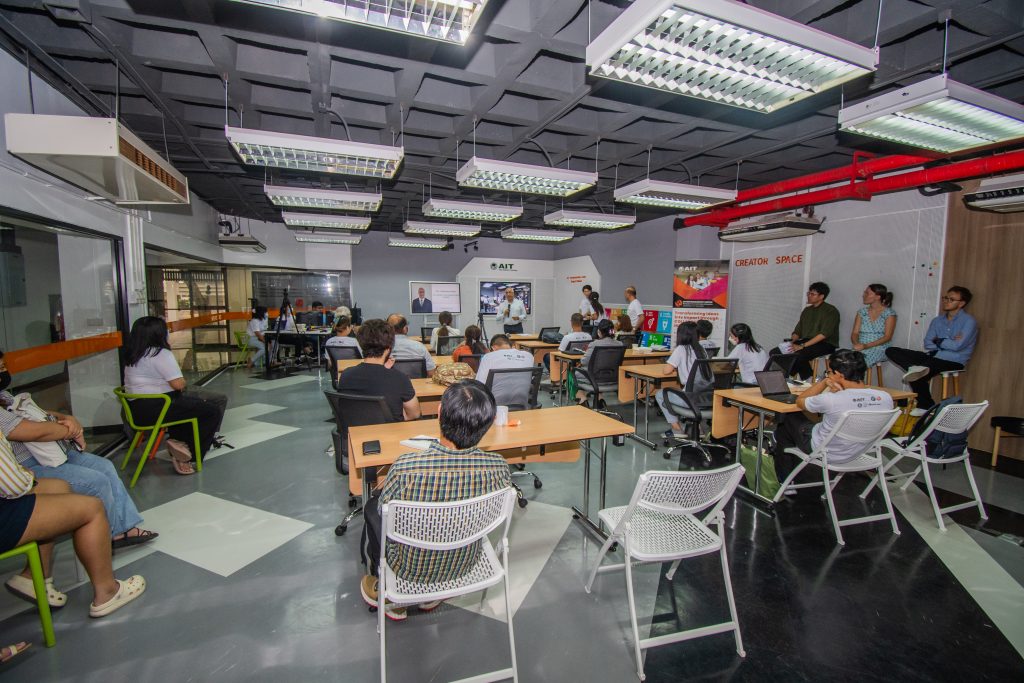
He further stated that the objective of the hackathon fits well with AIT’s emphasis on actions for sustainability in the current context and in the near term. “The focus here is rural-urban well-being which is a very important issue. More than 55% of the global population lives in urban areas which has been predicted to rise sharply by 2050, especially in Asia. This is why rural-urban linkage and rural-urban well-being are very important for us and I am sure you will have an interesting experience working in the hackathon”, he added.
Talking about the hackathon, Prof. Dieter Trau, Dean of SET and Director of the AIT-EC suggested participants to use the hackathon as a platform to generate, share and experiment with ideas and innovation rather than an internet search. He added, “Invention and improvement are different. Everyone can improve on something that already exists, but inventing is a true challenge and game-changing. I encourage everyone to work together as a group and generate new and innovative ideas.”
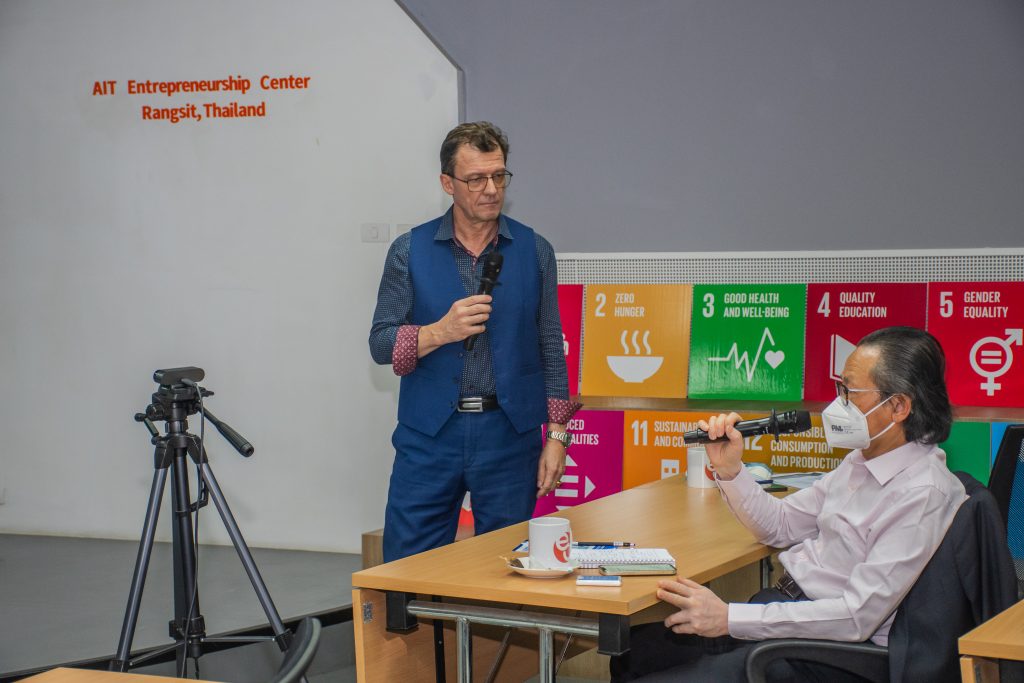
Hackathon organizer Prof. Nophea Sasaki of Natural Resources and Management, DDS shared that the hackathon focused on the wellness of people moving from rural to urban areas, especially in terms of working, communicating and movement. “We want to ensure that they have a good life in the city as they envisaged,” he said.
He added, “Through this event, we want the students to look at all four dimensions of sustainability and link them with SDGs. To achieve the goal, we want to seek solutions that could incorporate Technology 4.0 and bring innovative ideas and technologies to address the rural-urban human wellness issues. Furthermore, we want to encourage the students to think about how impact investments and green markets can bring their solutions forward toward achieving the real sustainability on the long run.”
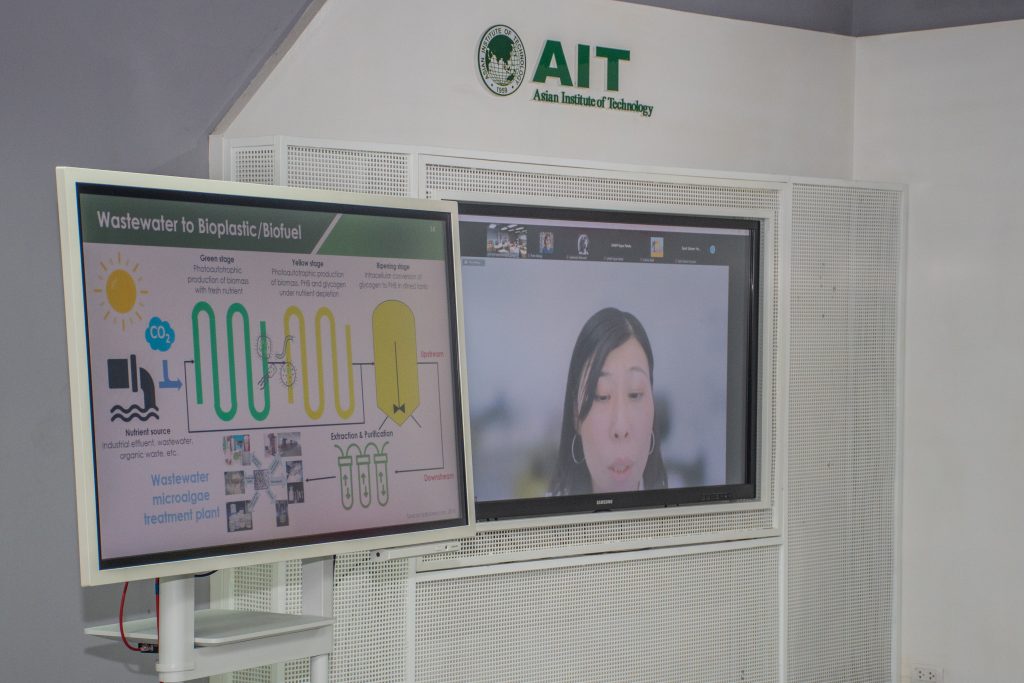
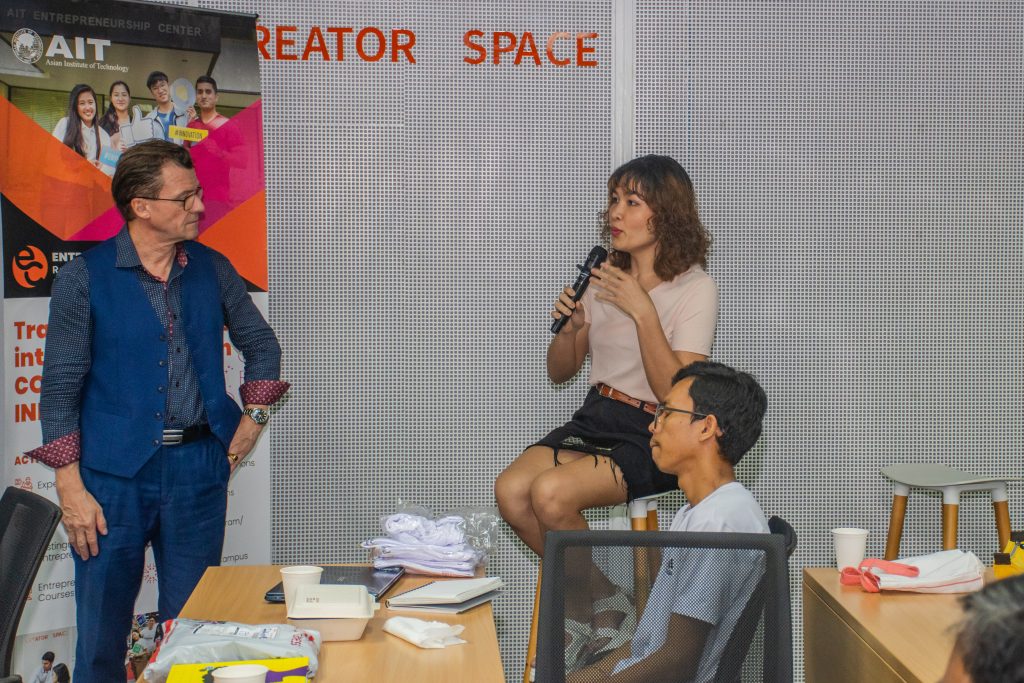
Throughout the course of the event, participants concentrated their hacking efforts on incorporating three key concepts: human wellness, rural area, and urban area or urbanization. The criteria for the Hackathon were to include at least three SDGs in the solutions and use at least two of the industry 4.0 technologies. The mentors included Prof. Nophea Sasaki, DDS; Assistant Prof. Takuji Tsusaka, DDS; Mr. Sanhakot Vithayaporn, Lecturer, Stamford and Mr. Wasanchai Vongsantivanich, CEO and Founder, DELV Aerospace.
The competition was judged by an expert panel comprising of Prof. Vilas Nitivattananon, Dean of SERD and course’s co-instructor; Prof. Dieter Trau, Dean of SET; Prof. Mokbul Ahmad, Head of DDS and course’s co-instructor, SERD; and Dr. Ekbordin Winijkul, Assistant Professor of the Environmental Engineering and Management of the SERD. . The ideas were judged across four criteria: sustainability innovation, social impacts, product design and team pitching. Teams with the most outstanding ideas were awarded in different categories; Sustainability, Innovation and Social Impact, receiving prizes of THB 20,000, THB 15,000 and THB 10,000 respectively. The prizes were sponsored by CSI, HM Prince and Penguin Bangkok by the South Pole.
The winners of the competition were as follows:
1. M&N – CSI prize – 20,000 THB
- Natthanan Duduang
- Muhammad Ali Khan
- Nawapat Choosuwan
- Fahim Shahriar
- Natdanai Jongsamak
2. SusHack – HM prince prize – 15,000 THB
- Roengnarong Sukklud
- Jaroslaw Bernas
- Kanokchai Manmesup
- Nachapol Kalpravidh
- Marika Zamelek
3. Sawantree – Penguin Bangkok -10,000 THB
- Deepsikha Dangol
- Nguyen Tan Danh
- Pravash Rajbhandari
- Pobai Tang
Awards based on popularity
4. SustainSanda – Cheamen prize – 3,000 THB
- Sharmila Shyangtan
- Soe Sandy Lin
- Aye Chan Myat Moe
- Saw Theint Theint Htet
- Hnin Htet Htet Htun
5. SusHack and Decompost – Krutour prize -2,000 THB
SusHack
- Roengnarong Sukklud
- Jaroslaw Bernas
- Kanokchai Manmesup
- Nachapol Kalpravidh
- Marika Zamelek
Decmpose
- Raksmey Phal
- Rambo Sorn
- Sela Voeurn
- Sokla Chhoeurt
- Socheata Cheng


